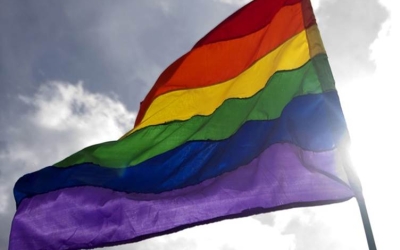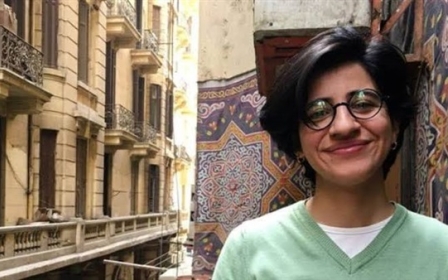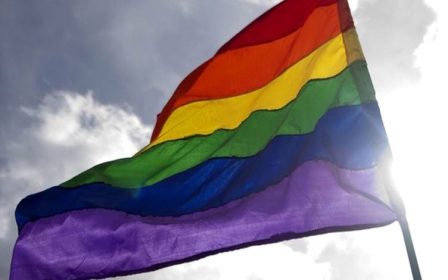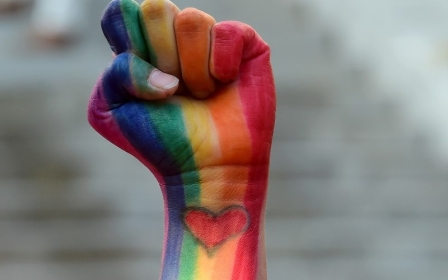Iraqi news media 'promoting hate speech' against LGBT people
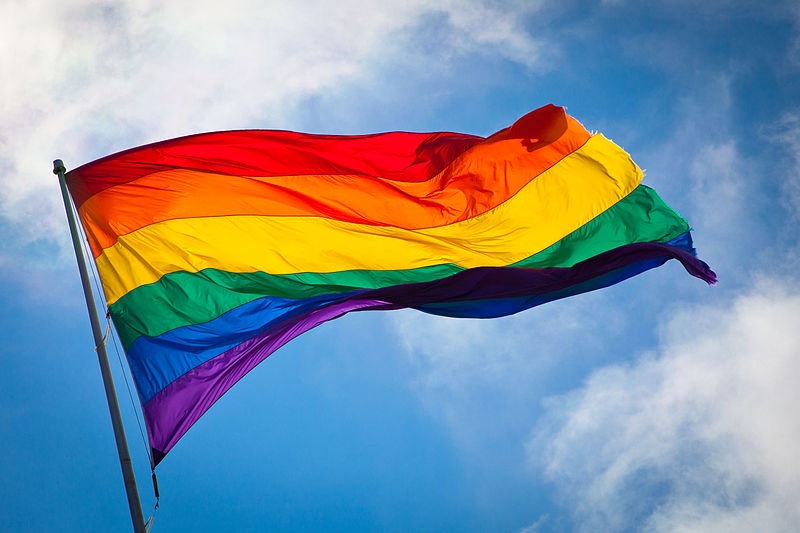
Iraqi media outlets have become key promoters of "hate speech" against LGBT people, according to a new report by Iraqi LGBT rights organisation IraQueer published on Tuesday.
The report, titled "BIASED: Iraqi Media and the Spread of Anti-LGBT+ Rhetoric", analysed a range of TV, print and online media outlets and the prevalence of writers and speakers repeating tropes and misconceptions about LGBT people on the outlets.
In the past five years, the discussion of homosexuality in Iraqi media has become considerably more prominent, with a particular increase occurring since 2019.
"Our analysis of the search results found that the overwhelming majority of the media coverage was biased against the LGBT+ community, encouraging people to reject such identities," the report read.
"On many occasions, the coverage went as far as calling for the elimination of LGBT+ people from society to 'protect' innocent children and youth who are 'easily influenced'".
New MEE newsletter: Jerusalem Dispatch
Sign up to get the latest insights and analysis on Israel-Palestine, alongside Turkey Unpacked and other MEE newsletters
The report noted that discussion on LGBT rights on television shows frequently framed the content with ominous or "dangerous" sounding music and settings.
Terminology was often abusive or suggestive of mental illness. In the 22 programmes analysed by IraQueer, at least one negative term was effectively used every 30 seconds.
Meanwhile, IraQueer noted, voices from the community were virtually absent from the debate.
"Additionally, out of the 777 minutes, which is the total duration of the 22 TV segments analysed, only 103 minutes of the time was dedicated to LGBT+ speakers," the report noted. "More than half of the programmes did not dedicate a single minute to LGBT+ speakers."
IraQueer itself has been specifically targeted a number of times, with one online outlet referring to it as the "sexual deviants' organisation in Iraq".
A study conducted by the organisation in 2018 revealed 89 percent of LGBT+ respondents as saying that media coverage in Iraq had "negatively impacted" the way they perceived their sexuality.
Continued repression
Although homosexuality is not illegal in Iraq, LGBT people have regularly faced persecution and violence, and homosexuality is widely regarded as unacceptable.
According to human rights organisations, armed groups have harassed and attacked LGBT people - or those perceived to not be heterosexual. In at least one instance in 2014, organisation Asaaib Ahl al-Haq released a wanted list with the names of suspected gay men.
In 2012, armed groups primarily in Baghdad started a campaign against people perceived to be "emo" - referring to usually young men perceived to be effeminate and sexually ambiguous.
The UN Assistance Mission for Iraq reported that around 56 people were murdered for being "emo" as a result.
'We have actually raised the rainbow flag in Baghdad, and did not find much resistance'
- Amir Ashour, IraQueer
In May, the raising of the rainbow flag by a number of foreign embassies in the country led to an outpouring of anger from across the political spectrum.
The ongoing anti-government demonstrations that began in October have offered some space for LGBT activists to demonstrate, though most still hide their sexuality for fear of being targeted by the security services or other armed groups.
Amir Ashour, executive director of IraQueer, said despite still grim prospects for most LGBT people, there had been a "growing openness amongst young Iraqis, especially those who have participated in October’s revolution".
"We use the word 'revolution' on purpose, as the majority of the people who were on the streets were supporters of a secular state where all citizens are protected, including LGBT+ people," he told Middle East Eye.
"We have actually raised the rainbow flag in Baghdad, and did not find much resistance."
Hopeful signs
Despite a largely negative outlook, the report noted that the very fact that there was an increasing discussion around the subject of LGBT rights was a sign that the topic was being taken more seriously.
In addition, IraQueer noted that the widely watched Al-Sharqiya channel, while far from reaching "professional standards" of journalism with regards to the subject, "offered LGBT+ speakers the largest amount of speaking time, and had a relatively more neutral coverage".
The report also said a number of online outlets had begun to take a more progressive - or at least neutral - stance on LGBT rights.
"Some of the more progressive online platforms include Yalla, which is mainly on Facebook," said Ashour.
"They still have some work to do, but are better than the mainstream media."
Middle East Eye delivers independent and unrivalled coverage and analysis of the Middle East, North Africa and beyond. To learn more about republishing this content and the associated fees, please fill out this form. More about MEE can be found here.


